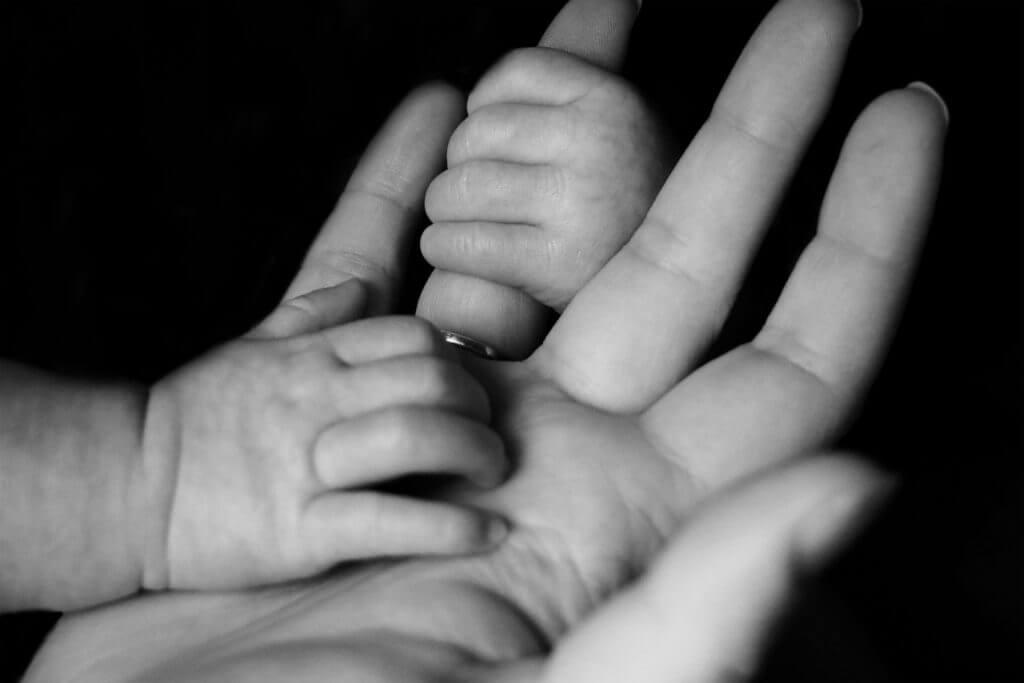If the family of a U.S. citizen or lawful permanent resident includes an adopted child, the immigration laws will allow a Green Card application for that child, provided certain requirements are met.
While adopting a foreign child can be an emotionally rewarding process, it can also be a legally complex process, therefore, it is advisable to seek the help of an experienced immigration attorney to move the case forward. At Jaskot Law, we are ready to help you through this complex legal procedure. Contact an attorney today and receive personalized legal assistance.
What is a petition for adopted children?
An adoption-based immigration petition for a child is a legal procedure that makes it possible for adopted children to immigrate to the United States and eventually apply for U.S. citizenship or Green Card before their 18th birthday.
The procedure for petitioning for an adopted child requires the involvement of several government agencies, including the U.S. Department of State and the U.S. Citizenship and Immigration Services (USCIS). It is crucial to understand the laws and regulations surrounding this process to avoid making mistakes and facilitate the process.

What are the deadlines to an adoption-based immigration petition for a child?
The deadlines to petition for an adopted child vary depending on several circumstances, which include the circumstance of the adoption, whether the child resides abroad, whether the adoption takes place in a country where the adoption process is governed by the Hague Convention or not, among others.
In addition, it is important to mention that adoption proceedings must be initiated before the child reaches 16 years of age. However, if the adoption was completed after age 16, the form can be filed until the child is 18.
What are the ways to petition for an adopted child?
The U.S. legal system offers several ways in which a child can petition to become a citizen or lawful permanent resident and immigrate to the United States on the basis of adoption.
The process by which such a petition will be processed will depend on the particular case of each individual. However, it may be discerned in an initial instance whether the request is made for an orphaned child or a non-orphaned child.
- Orphan child: requires completion of adoption proceedings in Hague Convention countries or a non-Hague adoption proceeding.
- Non-orphaned child: requires finalized adoption proceedings.
The Hague Process
If your child is from a Hague Convention country, you will need to file a Form I-800A along with the home report. Once these documents are reviewed and approved by USCIS, you may file Form I-800 (Petition for Alien Relative) before your 16th birthday.
The requirements to be fulfilled for this request will be the following:
- Be a U.S. citizen.
- Be married or at least 25 years of age.
- Follow the rules of the country that responds to the Hague adoption process.
- Undergo a home study conducted by a licensed adoption service provider.
- Submit to fingerprinting and biometric data collection, and criminal background check.
If the application is approved and certain requirements are met, the embassy will issue an immigrant visa to your child.
Non-Hague process
If your child is from a non-Hague Convention country, it will be essential that you file a Form I-600A along with the home report. If USCIS approves your application, and you meet the necessary requirements, then you may file Form I-600 before the child turns 16 years of age (with some exceptions).
The requirements to be fulfilled for this request will be the following:
- Be a U.S. citizen.
- Be married or at least 25 years of age.
- Follow the rules of the country that responds to the Hague adoption process.
- Undergo a home study conducted by a licensed adoption service provider.
- Submit to fingerprinting and biometric data collection, and criminal background check.
If the application is approved and the necessary requirements are met, the embassy will issue an immigrant visa to your child.
Immediate family members
If your child does not qualify for adoption through the processes listed above, you may choose to file Form I-130 to petition for an alien relative abroad on behalf of the adopted child. In order to file this form, the U.S. citizen must meet certain requirements.
The requirements to be fulfilled for this request will be the following:
- The legal adoption process must have been finalized before the child turned 16 years of age (or 18 years of age if he or she is a biological sibling of a child you have already adopted or are adopting).
- Parents must accumulate two years of fiscal and legal custody to obtain full adoption.
Humanitarian permits for adopted children
There are also humanitarian permits for children in the process of adoption. For more information, visit the official USCIS website, Guidance on Evidence for Certain Types of Humanitarian or Significant Public Benefit Permit Petitions.

What types of visas can my adopted child qualify for?
Once the USCIS has approved the appropriate forms, your adopted child will be eligible for a visa to live in the United States. The visa your child receives will determine the steps to be taken to obtain permanent residency or Green Card.
Visas for adoptions under the Hague Convention
- IH-3 Visa: Issued to minors with full and final adoption.
- IH-4 Visa: Issued to minors entering the United States.
Visas for non-Hague Convention Adoptions
- IR-3 Visa: Issued to children with full and final adoption abroad, with parental contact during the adoption process.
- IR-4 Visa: Issued to minors entering the United States for adoption who were adopted abroad by a parent, or who were not seen by the parents during the adoption process.
Other types of visas for adopted children
- IR-2 Visa: Issued to an unmarried child under 21 years of age.
How long does citizenship take for my adopted child?
Obtaining citizenship for your adopted child may vary in time, depending on the type of visa granted by the relevant U.S. authorities. It is important to note that this process may be faster if the child has been adopted from a country that is party to the Hague Convention on Intercountry Adoption.
IR-3 and IH-3 Visas
Minors with IR-3 or IH-3 visas will receive U.S. citizenship immediately if: 1) enter the United States before their 18th birthday, and 2) reside in the United States with their parents. It is important to note that U.S. government or military personnel who are stationed overseas may qualify as residents.
IR-4 and IH-4 Visas
Minors on IR-4 and IH-4 visas do not automatically acquire U.S. citizenship upon entry into the United States; instead, they become beneficiaries of permanent residency. These minors will receive their Green Card, and will automatically receive citizenship on the date of adoption in the United States (if this occurs before they turn 18 years of age).
IR-2 Visas
Children under 18 years of age acquire citizenship automatically when they enter the United States and, to do so, must reside with their parents. In this case, U.S. government or military personnel who are stationed abroad may qualify as residents in the same manner. Those over 18 years of age acquire permanent residency and a Green Card. Beneficiaries of this visa may apply for naturalization when applicable.

The importance of the citizenship certificate for an adopted child
The citizenship certificate is a fundamental step in international adoption. This document irrefutably proves the child’s citizenship and entitlement to all the benefits that come with being a U.S. citizen, including the possibility of obtaining a green card.
This document is issued by the United States Citizenship and Immigration Services (USCIS) once the adoption process has been completed and all immigration requirements have been met.
| Place of residence | Forms | Requirements |
| If you are inside the United States, or if you belong to certain groups such as being a member of the U.S. military, are a U.S. government employee, and your spouse is a U.S. citizen but is outside the United States. | Form N-600, Application for Certificate of Citizenship. | Residing in the United States (except U.S. military service members, among others) and in the legal and fiscal custody of their parent(s) after entering the country and being admitted as a lawful permanent resident. |
| If you are outside the United States and are seeking citizenship. | Form N-600K, Application for Citizenship and Issuance of Certificate of Citizenship Under Section 322. | Submit the application before the child reaches 18 years of age. That the parent meets physical presence requirements. The child must be temporarily present in the United States after being lawfully admitted. The child under 18 years of age must take the Oath of Allegiance in front of a USCIS officer. |
What happens if there is a dissolution of the adoption process?
When an adoption is terminated, or a dissolution is effected, after an immigrant visa has been issued to the adopted child, the child may still obtain U.S. citizenship if he or she is later adopted by another U.S. citizen and meets the relevant requirements.
If a child is a U.S. citizen at the time the adoption is terminated or annulled, the child retains his or her citizenship, even if a Certificate of Citizenship has not yet been issued. For more information about your child’s citizenship status, you may contact a USCIS center for verification of status and applications.
The role of a lawyer in the petition of an adopted child
The petition process for an adopted child is a complex process that requires time and dedication. The role of an attorney in an adopted child petition is crucial to successfully navigating the legal complexities involved in U.S. immigration law.
Whether you are seeking help for a relative or as an adoptive parent you want to understand what this legal challenge entails, an experienced attorney may be able to help you understand and verify that you meet all thenecessary requirements and relevant documents to obtain permanent residency or Green Card for your adopted child. Avoid delays and complications, and contact a Jaskot Law attorney today for your case review.
Frequently Asked Questions
How long does it take to become a U.S. citizen by adoption?
Obtaining citizenship for your adopted child may vary in time, depending on the type of visa granted by the U.S. authorities. Your child will enter the country on an immigrant visa issued by the U.S. Department of State (DOS) and the type of visa acquired will determine the steps to be taken for the child to acquire U.S. citizenship.
Is it important to obtain a Certificate of Citizenship for my adopted child?
Yes. The Certificate of Citizenship is the irrefutable proof of citizenship that the minor possesses. This document, issued by USCIS, is a fundamental step in the adoption process and for the subsequent obtaining of the Green Card.
Can a minor lose citizenship if the adoption is disrupted?
A child whose adoption has been terminated or annulled may still obtain U.S. citizenship if he or she is later adopted by another U.S. citizen and meets certain requirements. However, if a child is a U.S. citizen at the time the adoption is terminated or annulled, the child retains his or her citizenship, even if a Certificate of Citizenship has not yet been issued.
Ana Aguirre Santos is an advanced student of the National Sworn Translator’s Degree in English at the National University of Córdoba (Argentina) where she specializes in legal and commercial translation. She has worked as a translator and copywriter for several websites, creating relevant and reliable content for a variety of users.


